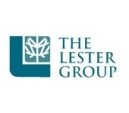Macroeconomic factors point to a market slowdown in the next 18-24 months, Metrostudy’s chief economist Mark Boud said last week at the ProSales 100 Conference in San Antonio, Texas. This will not result in a severe recession like that seen in 2008-2009, Boud warned, but market conditions indicate a minor slowdown is on the horizon.
Factors related to job growth, material costs, inflation, and rising debt suggest the slowdown could be on the horizon. Boud said job growth has been healthy since the Great Recession and the healthy growth will continue into 2019, but it will begin to decline in 2020 and 2021, before growth becomes negative in 2022 and 2023. The job loss predicted during those years are not projected to be on the scale of the near 5 million jobs lost during 2009, suggesting the economy may be able to recover fairly quickly.
Boud said the slowdown likely will not impact the housing industry as strongly as it did during the Great Recession because total housing starts are nowhere near the levels they were in 2008. Housing starts are just above the historical long-term average, suggesting not many homes are being built. Boud said indicators project 1.3 million housing starts in the United States during 2019. While a recession or slowdown may cause the number of housing starts to shrink, there is already a shortage of homes so the impact will not be as pronounced.
Boud added that most geographical housing markets are “top heavy,” where there is pent-up demand for housing in the lower price ranges and an excess of supply in higher price ranges. He added that the gap between new home prices and existing home prices has become more accelerated in recent years, while the size of new homes built also remain high. Many homeowners are also electing to renovate in place rather than moving up, crowding out many would-be entry-level buyers and contributing to a tight housing market. As a result, Boud said, the remodeling industry is expected to continue to grow over the next several years. While the overall housing industry could experience a slowdown, the remodeling industry could experience positive effects longer than the industry as a whole, before eventually experiencing a slowdown.
In addition to providing a macro look at the housing market, Boud also discussed the macroeconomic effects of several government policies and their ripple effects into the housing market. Boud indicated tariffs are impacting the short-term cost of materials, while the long-term impact of such tariffs are uncertain with negotiations ongoing. Boud said tighter immigration policy is likely to impact the housing market, which relies strongly on that labor pool. If there are no policies to counterbalance the labor lost, it could accelerate the short-term pain of high labor costs and an overall labor shortage.



